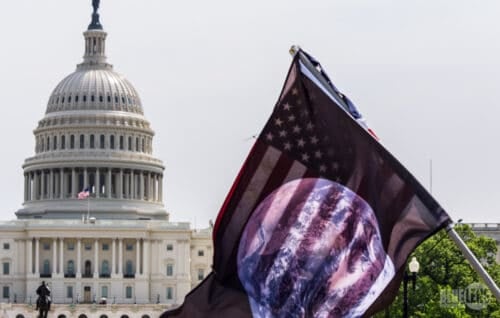College Voices
Millennial and Swing State Perspectives of the Paris Agreement

“We’re getting out.”
On June 1, President Trump kept a highly controversial campaign promise by announcing that the United States would leave the Paris Climate Accord.
The president believes that the deal “punishes” America and “could cost America as much as 2.7 million lost jobs by 2025.”
Along with China, the United States officially joined the Paris Climate Accord in September 2016 under the Obama Administration. For the agreement to take effect, at least 55 countries that together represent at least 55 percent of global greenhouse emissions needed to formally join the Agreement.
Obama entered the agreement citing the investments being made for innovation in clean energy and the importance of strong international diplomacy.
Trump, however, decided to reverse Obama’s decision, despite pressure from big business urging him to stay committed to the agreement.
A plethora of small businesses across the country, however, celebrated Trump’s decision to put American businesses first and do away with unnecessary regulations.
In the key swing state of Ohio, perspectives on Trump’s decision vary. Blaine Yaffe, a rising senior at The Ohio State University, is a political science major and a member of OSU’s College Republicans and Turning Point USA.
Yaffe agrees with the president’s decision, stating that there “are a lot of holes in the agreement that aren’t really being acknowledged by the media,” including a lack of information of how the agreement benefits the environment and the economic strain businesses would face with these regulations.
“This decision absolutely puts America first, but it also exemplifies what it takes to be an economic powerhouse, and still protect the environment,” Yaffe said.
“It protects U.S. businesses from the sometimes frivolous government regulations, and provides proof that the use of natural gas can allow a country to maintain a superiority economically as well as environmentally, hopefully encouraging other countries to follow our example.”
Nicki Franks, a rising sophomore at Barnard College in New York City, but originally from Circleville, Ohio, disagrees. Franks is an Environmental Science and Political Science major and is a member of Divest Barnard, an organization that pressures the Barnard administration to divest its endowment from fossil fuel companies.
“The mere symbolism of leaving this agreement disregards [Trump’s] ‘Make America Great Again,’ for while other countries are going to continue advancing their science along with concurrent policy and investments, the President of the United States is still denying science,” Franks explained.
A major concern is how this decision will affect America’s ability to advance clean energy innovation and be competitive in the global market in this growing industry.
While Trump focuses on opening new coal mines, renewable energy continues to outpace fossil fuels in economic growth and employs nearly 10 million people globally.
Franks criticizes the “America First” agenda, saying that “America has always had a misconception that in order to be ‘great’ we need to be first.” She urges a global, rather than just national, perspective.
“America’s pride and nationalism often suffocate the voices of other countries,” Franks said.
“That just eliminates a crucial voice in the dialogue; it’s common knowledge that the more voices and perspectives you have, the better ideas you form. We need to stop worrying about what would make America great and start worrying about how we can help the world become greater.”

